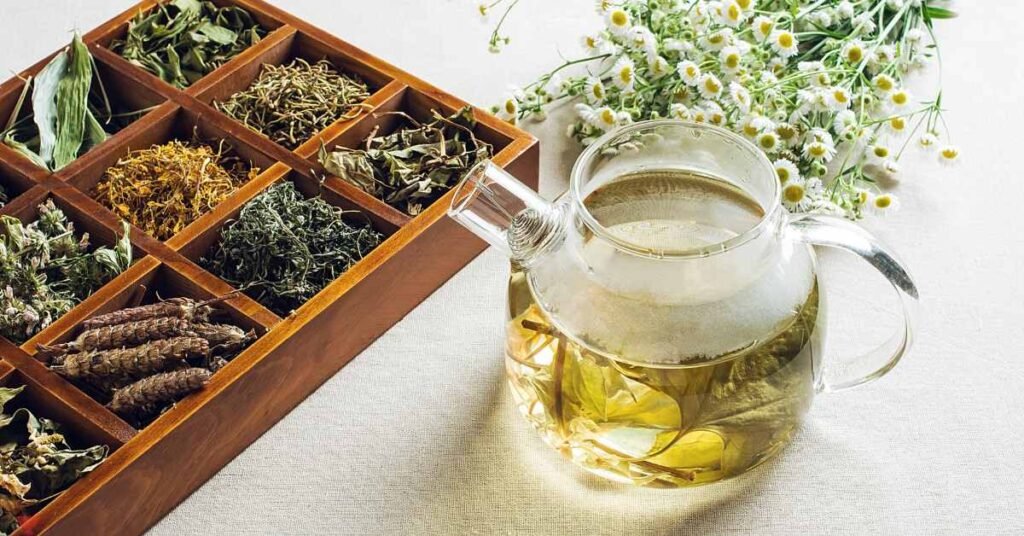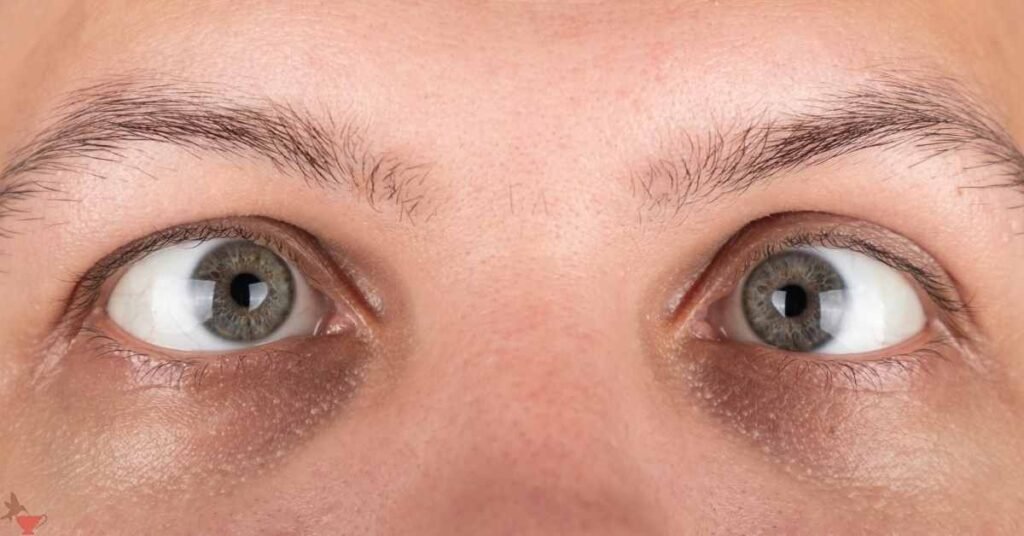“I remember the day I first learned about Kearns-Sayre Syndrome and how daunting it felt to find supportive measures for mitochondrial health,” a friend once shared with me.
If you or a loved one is dealing with Kearns-Sayre Syndrome (KSS), you might already know that managing this rare mitochondrial disorder can be challenging.
Herbal teas, known for their antioxidant and anti-inflammatory properties, can offer some supportive benefits. Here’s a closer look at how herbal teas can support mitochondrial health and a recipe to try.
Understanding Kearns-Sayre Syndrome and Mitochondrial Health

Kearns-Sayre Syndrome is a rare neuromuscular disorder that typically begins before the age of 20.
It is characterized by progressive external ophthalmoplegia, pigmentary retinopathy, and cardiac conduction defects, among other symptoms.
The syndrome is caused by defects in mitochondrial DNA, leading to impaired energy production in cells.
Mitochondria are the powerhouses of the cells, responsible for producing the energy that our bodies need to function.
In KSS, the compromised mitochondrial function results in a range of symptoms affecting muscles, eyes, and the heart.
While there is no cure for KSS, supportive treatments focusing on mitochondrial health can help manage the symptoms and improve quality of life.
The Role of Herbal Teas in Supporting Mitochondrial Health
Herbal teas can be a gentle and effective way to incorporate antioxidants and other beneficial compounds into the diet. Certain herbs are known for their potential to support mitochondrial function and overall cellular health:
- Green Tea (Camellia sinensis): Rich in catechins, green tea is a powerful antioxidant that helps protect cells from damage.
- Ginseng (Panax ginseng): Known for its adaptogenic properties, ginseng may help improve energy levels and reduce fatigue.
- Ginkgo Biloba: Often used to enhance cognitive function, ginkgo biloba supports blood circulation and may benefit mitochondrial health.
- Turmeric (Curcuma longa): Contains curcumin, a potent anti-inflammatory and antioxidant compound.
- Rhodiola Rosea: Another adaptogen, rhodiola is known to help reduce fatigue and improve resilience to stress.
Herbal Tea Recipe for Mitochondrial Health

Here is a simple and soothing herbal tea recipe that combines some of these beneficial herbs. This tea aims to support mitochondrial health and provide a relaxing, therapeutic experience.
Ingredients:
- 1 teaspoon of green tea leaves
- 1 teaspoon of ginseng root slices
- 1 teaspoon of ginkgo biloba leaves
- 1 teaspoon of dried turmeric root or 1/2 teaspoon of turmeric powder
- 1 teaspoon of rhodiola root slices
- 4 cups of water
- Honey or lemon (optional)
Preparation:
- Combine Herbs: In a teapot or a large heat-resistant jar, combine the green tea leaves, ginseng root slices, ginkgo biloba leaves, dried turmeric root (or powder), and rhodiola root slices.
- Boil Water: Bring 4 cups of water to a boil.
- Steep: Pour the boiling water over the herbal mixture. Cover the teapot or jar and let the herbs steep for about 10-15 minutes.
- Strain: After steeping, strain the tea into cups, removing all the herb pieces.
- Serve: Serve the tea hot. You can add honey or a slice of lemon for added flavor if desired.
Benefits and Considerations
Drinking this herbal tea regularly can provide antioxidants and anti-inflammatory benefits that support mitochondrial health.
However, it’s important to consult with a healthcare provider before adding new herbs to your regimen, especially if you’re managing a condition like Kearns-Sayre Syndrome.

Herbs can interact with medications and may not be suitable for everyone.
Final Word
While managing Kearns-Sayre Syndrome is undoubtedly challenging, incorporating supportive measures like herbal teas can be a small, comforting step towards better health.
This herbal tea blend, rich in antioxidants and adaptogens, aims to support mitochondrial function and offer a moment of relaxation in your daily routine.
Remember, each sip is a gentle reminder of the body’s resilience and the power of natural remedies.
MEDICAL DISCLAIMER
Itsnevernotteatime.com cannot and does not contain medical/health advice. The medical/health information is provided for general and educational purposes only and is not a substitute for professional advice.




